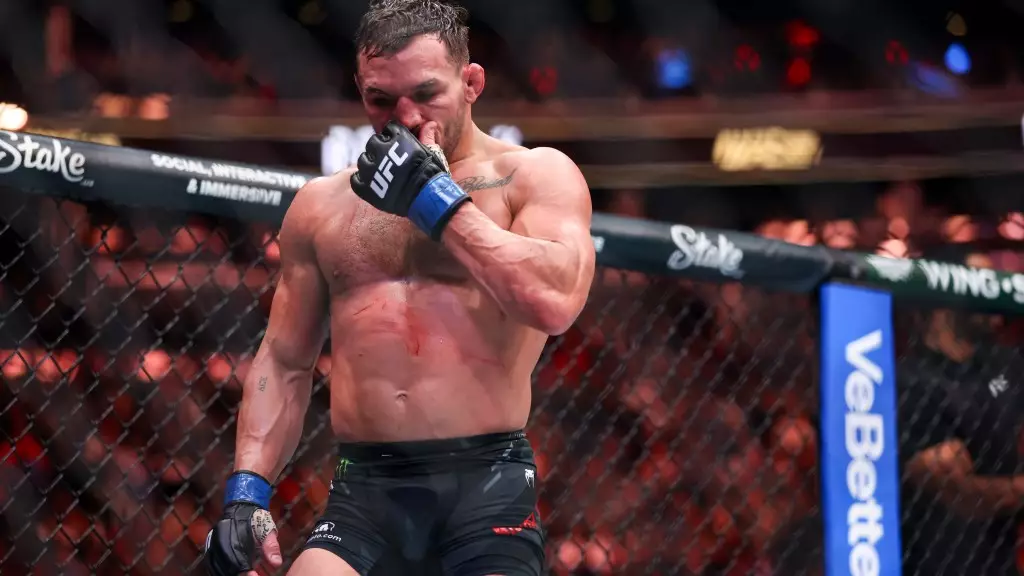The landscape of mixed martial arts (MMA) is often dictated by market dynamics as much as by athletic prowess, and nowhere is this seen more clearly than in the contrasting trajectories of UFC lightweight champion Islam Makhachev and his counterpart Michael Chandler. The disparity in their paths to an opportunity at the lightweight title raises critical questions about the nature of opportunity, skill, and promotional influence in combat sports.
When Michael Chandler transitioned from Bellator to the UFC, he was greeted with a rapid ascent that struck many in the MMA community as disproportionate. After just one fight, a notable knockout of Dan Hooker in January 2021, Chandler was thrust into a title match against Charles Oliveira in May of the same year. The fight, however, culminated in a deflating knockout defeat that left him wanting. Chandler’s journey, while dramatic, starkly contrasts with Makhachev’s methodical climb, thus raising eyebrows about the criteria used for title shots in the UFC.
Notably, Chandler’s marketability and his engaging personality likely played pivotal roles in securing his swift elevation within the promotion. His arrival in the UFC was met with fanfare and media attention, leading many to speculate that promotional strategy outweighed competitive merit in determining opportunities for title contention.
Islam Makhachev, on the other hand, endured an arduous journey that saw him accumulate ten consecutive victories prior to receiving his shot at the title. His campaign emphasizes the labor and resolve he committed to hone his skills without gaining immediate recognition. “I fought like how many years,” he lamented, pointing to the frustrations faced by dedicated athletes who aren’t able to secure swift opportunities partly due to their less marketable personas. Makhachev’s rise underscores the importance of perseverance in a sport notorious for quick judgments and celebrity-oriented narratives.
Makhachev’s experiences have only solidified his resolve. As he stated, “It’s so hard, big way,” reflecting upon how roadblocks affected not just him but also compatriot Khabib Nurmagomedov. Both athletes exemplify the grit required to navigate a challenging landscape where skill alone does not guarantee promotion.
The disparity between Makhachev’s scrupulous ascent and Chandler’s rapid trajectory encapsulates the often-contentious debate surrounding meritocracy versus marketability in sports. While Makhachev demonstrates the essence of dedication and skill, Chandler’s rise echoes the promotional strategies that may prioritize entertainment over sheer competitive edge.
Looking ahead, Makhachev faces Arman Tsarukyan at UFC 311, intending to establish a UFC lightweight record of four consecutive title defenses. His triumph will not only solidify his standing as a champion, but it will also challenge the very notion of what it means to be deserving of a title shot in the UFC.
The UFC lightweight division exemplifies the complexities of meritocracy in sports, and as Athletes like Makhachev pave their paths with hard-earned credibility, they question the fairness of a system that at times favors marketability. As MMA continues to evolve, the balance between promotional strategy and competitive integrity remains a pivotal discussion that warrants scrutiny from both fans and athletes alike.

